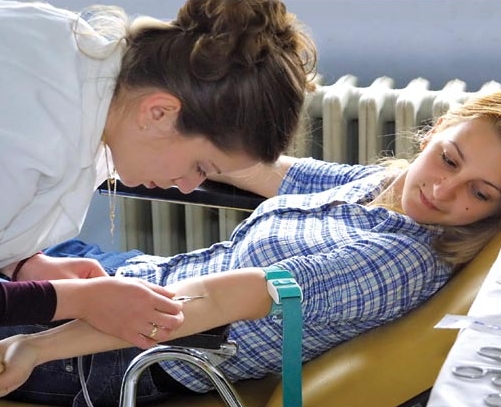Master On-The-Job Phlebotomy Training: Boost Yoru Healthcare Career Today
if you’re passionate about the healthcare industry and looking to specialize as a phlebotomist, on-the-job phlebotomy training offers a practical, cost-effective, and fast pathway to achieving your career goals. This comprehensive guide explores the benefits, practical tips, and success stories of mastering blood collection skills through hands-on training in real clinical settings.
Introduction
Phlebotomy, the art of drawing blood for laboratory testing, transfusions, or donations, is a vital component of healthcare diagnostics. Traditional phlebotomy training programs are often classroom-based with some clinical practice. Though, many aspiring phlebotomists are turning to on-the-job training as an efficient alternative that immerses them directly into real-world clinical environments. Whether you’re a new entrant to the healthcare field or looking to expand your skills, mastering phlebotomy through practical training can substantially accelerate your career trajectory.
What Is On-The-Job Phlebotomy Training?
On-the-job phlebotomy training involves learning blood collection techniques directly within healthcare facilities such as hospitals, clinics, and laboratories. Instead of solely relying on classroom lectures, trainees gain hands-on experience under the supervision of seasoned professionals. This method allows students to develop confidence, refine their skills, and understand the day-to-day responsibilities of a phlebotomist in a realistic setting.
Why Choose On-The-Job Phlebotomy Training?
- Real-world experience: Practice blood draws on actual patients, preparing you for diverse scenarios.
- Cost-effective: Often included in your employment or training programs, saving money on separate courses.
- Faster pathway to employment: Gain job-ready skills quickly and improve employability.
- Mentorship opportunities: Learn from experienced professionals and build valuable industry connections.
- Versatility: Adapt to the workflow and patient interactions in a real clinical habitat.
Key Benefits of mastering Phlebotomy On-the-Job
| Benefit | Description |
|---|---|
| Hands-On skill Development | Gain practical experience that enhances confidence and competency in blood collection. |
| Accelerated certification | Complete your training faster and become eligible for certification exams sooner. |
| Increased Job Opportunities | Employers favor candidates with real-world experience, boosting your employability. |
| Improved Patient Interaction Skills | Learn effective communication and bedside manners from experienced staff. |
Practical Tips for Successful On-The-Job phlebotomy Training
Embarking on this learning journey requires focus and dedication. Here are some practical tips to maximize your on-the-job phlebotomy training:
- Observe and Ask Questions: Pay close attention during initial procedures and seek clarification when necessary.
- Practice Patience: Blood draws can be challenging at first. Patience and persistence are key to mastering the skill.
- Learn Infection Control: Understand the importance of hygiene, glove use, and safety protocols.
- Develop Strong Communication Skills: Building rapport with patients eases the procedure and fosters trust.
- Seek feedback: Regularly ask for constructive feedback from your supervisors to improve your technique.
Case Studies: Success Stories in On-The-Job Phlebotomy Training
Case Study 1: From Novice to Certified Phlebotomist
Jane,a recent healthcare assistant,pursued on-the-job phlebotomy training at a regional hospital.Within six months, she mastered blood collection, passed her certification exam, and now works independently. Jane reports that hands-on experience taught her nuances that classroom training couldn’t provide,making her a confident professional in her role.
Case Study 2: Overcoming Challenges in Blood Collection
Mike struggled initially with tough veins and anxious patients, but through supervised on-the-job practice and mentorship, he developed critical problem-solving skills. Today, he’s renowned for drawing blood efficiently from a wide range of patients, demonstrating how practical training empowers learners to handle real-world challenges.
Additional Resources and Certifications
While on-the-job training provides valuable skills, obtaining recognized certifications enhances employment prospects. Central certifications for phlebotomists include:
- Certified Phlebotomy Technician (CPT)
- National phlebotomy Certification (NPT)
- American Society for Clinical Pathology (ASCP) Certification
Conclusion
Mastering on-the-job phlebotomy training is a powerful pathway to launch or advance your healthcare career. It offers practical, real-world experience that classroom programs alone cannot match, helping you develop the skills, confidence, and professional connections needed to succeed.Whether you’re just starting out or seeking to specialize further, hands-on training empowers you to become a proficient, patient-focused phlebotomist in a competitive healthcare landscape. Embark on this journey today and unlock new opportunities in your healthcare career!
